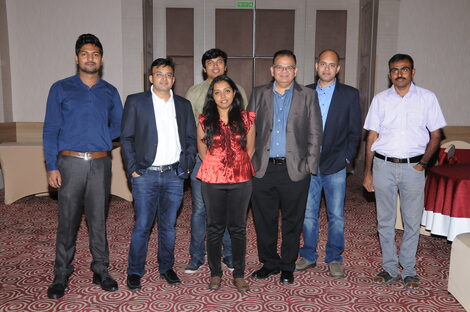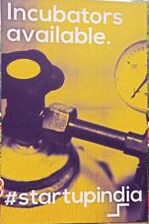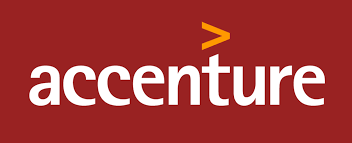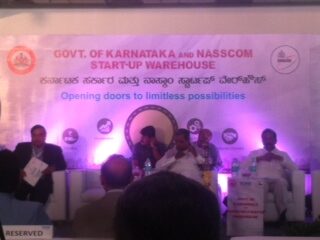
The National Association of Software & Services Companies (NASSCOM) launched “The Future of Internet in India” report in partnership with Akamai Technologies, a global leader in content delivery network (CDN) services. The study was researched and created by YourStory.com, a leading media platform for entrepreneurship, in collaboration with Nasscom and with supporting data from Akamai and other sources. The report, launched by Mr. R Chandrashekhar, President, Nasscom and Dr. Tom Leighton, Co-founder, CEO Akamai Technologies, aims to understand the impact of the Internet on the way we live, learn, work, shop and connect; and focuses on the future trends that will change the landscape of India by 2020.
Speaking at the launch, Mr. R Chandrashekhar, President, Nasscom stated that, “India’s Internet consumption has already exceeded USA to become No. 2 globally. Keeping into consideration the massive impact that the Internet is creating across sectors, it has become the greatest disruptor of our age by changing the way we work, interact socially and live life in general. By 2020, the Internet is expected to penetrate deeper in the hinterlands of the country, helping to create more opportunities for everyone.”
“The rapid growth of the Internet and its expansion into verticals including e-Commerce, Travel and Hospitality, Public Sector, Financial Technology and Media is a clear indication of the state of things to come,” said Mr. Chandrashekhar.
According to the report, India’s Internet user base is the second largest after China. Globally, the number of Internet users is expected to touch 4170 million by 20201. The growth of the Internet has successfully created a strong ecosystem for new businesses to tap into growing markets and create solutions to address their demands.
“The start-up ecosystem in India, coupled with the government’s initiatives make the Internet accessible to every citizen across the country, is helping India set the stage to enable large numbers of ‘netizens’ to reap the benefits of the Internet. With the rise of digital natives and the increased adoption of smartphones, Internet penetration in India will stretch beyond the large cities, as more services and devices come online. This is also a great opportunity for enterprises to harness the power of the Internet to innovate and scale operations,” said Mr. Sidharth Malik, Vice President and Managing Director, India, Akamai Technologies.
Online shopping will account for two-thirds of the total e-Commerce market, edging out travel
According to the report, the overall e-Commerce market in India was valued $17 billion in FY 2016, and by 2020, India will have an estimated 702 million smart phones in use and mobile phones will emerge as the preferred device for shopping, accounting for 70% of total online shopping. The fashion and lifestyle segment will emerge as the largest e-tailing category with a 35% contribution to e-Commerce GMV by 2020, overtaking the consumer electronics segment which dominates the sales of Indian e-Commerce industry at present.
50% of travel transactions to be online by 2020
Travel across India, for social visits, leisure, shopping and holidays is all set to increase and more people will be booking online, taking advantage of competitive pricing offered by online travel agents (OTAs) and aggregators. An increasing amount of user-generated content online (views on social media, reviews on websites, etc.) is driving aspirational travel, tipping the scales in favour of trips that were once only contemplated, never undertaken.
Media and OTT –– All moving online, one app at a time
The availability of affordable smartphones and tablets has encouraged the second screen phenomenon. With the rapid adoption of smartphones and next generation networks, content consumption patterns and consumer engagement channels are rapidly evolving. Even in its nascent phase, the video-on-demand (VOD) market is highly competitive in India.
Financial technology –– Disrupting the way India pays online
Fintech is disrupting financial services and is likely to have far more widespread impact on society and the Indian economy, both directly and indirectly. The fintech software market within this was pegged at $1.2 billion (13-15%2). The remaining 87% focus on services, primarily in payments (60% of the market, including ATM/Point of Sale [PoS]) and core banking services. Overall, according to the report, India’s fintech market is expected to grow 1.7x between 2015 and 2020. While cash-on-delivery may remain the preferred mode of payment for newer users, keep in mind that use of mobile banking and e-wallets is surging.
In conclusion – The future is bright but there is a greater need to collaborate
In times to come, while mobile will be a key access device, larger devices will continue to be important in areas like education and business. Multiple stakeholders will need to work in tandem to bring the next generation of Internet users (rural based, mobile centric, local language focused) online in India. Further, with digital connectivity, the risk of cyber-crimes also increases. With multitudes of people using e-Commerce and transacting online, there is a huge need for technologies that can prevent data theft. India is witnessing a huge demand for security professionals (technologists and analysts, alike). In line with these growing demands, security has become one of the key focus areas for Nasscom Sector Skills Council, working towards creating the right cybersecurity skill sets for Indian IT professionals.
 Singapore: In a significant development, Concur - an SAP company and one of the world’s leading provider of integrated travel and expense management solutions - has announced a collaboration with AirAsia Group that will help Concur Travel customers access regular and exclusive corporate content from AirAsia. The latter content is available only to customers who have a direct agreement with AirAsia. This is expected to help businesses reduce their corporate travel spend amidst the present challenging economic environment, where many businesses are closely monitoring and looking at better managing their travel costs.
Singapore: In a significant development, Concur - an SAP company and one of the world’s leading provider of integrated travel and expense management solutions - has announced a collaboration with AirAsia Group that will help Concur Travel customers access regular and exclusive corporate content from AirAsia. The latter content is available only to customers who have a direct agreement with AirAsia. This is expected to help businesses reduce their corporate travel spend amidst the present challenging economic environment, where many businesses are closely monitoring and looking at better managing their travel costs.



















